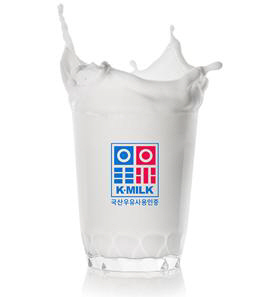Dairy Day Revisits at 4 a.m. on Farmers' Day
Nov 10, 2025
|
Dairy farming is known to be the most consistent field among agriculture. Since cows are living creatures that produce milk every day, dairy farmers have no rest for 365 days. "Even among parents, milk should be salty" is not an expression to highlight grievances, but a clear demonstration of the characteristics and responsibility of the dairy industry dealing with life.
According to data from the Rural Development Administration, dairy farmers spend about 71 hours per year on one cow. Of those, 42% or as many as 30 hours are milked, and due to the nature of the milking station where milking has begun, ranches must be milked and managed every day, no matter how urgent it is. Since there is no separate farming season, if a detailed work plan is not premised, I have to leave myself to the daily life of cows. The milking takes place twice at 6 a.m. and 6 p.m., and considering the preparation and finishing, the day of dairy farmers begins at 4 a.m. and ends at 8 p.m. But the purpose of this work is clear. Beyond simply working for a long time, it is a time for proud management for 'cleaner, safer milk' as a process to preserve crude quality.
In fact, domestic milk has recently been evaluated as having a more advanced level of quality control. More than 99% of crude oil produced in Korea is judged first-class, and the first-class standard is set at less than 200,000 body cells and less than 30,000 bacteria. This is more stringent than the United States, which has a standard of 100,000 bacteria or the EU, which allows a standard of 400,000 somatic cells or less. Such high quality is maintained through careful management and technological advancement in the field, including hygiene management, specification management, and monitoring of individual health.
CEO Lee Bok-yeol, who runs Saengyang Ranch in Hwaseong, Gyeonggi Province, said, `Dairy farming is not just raising livestock, but communicating and reading conditions as if talking with cows every day.'." In fact, dairy farming is different from other livestock that feed and wait for shipment. Every day, they face cows, check their conditions, and produce crude oil, so even small changes in cows are immediately felt. The characteristics of dairy farming, which must respond to small changes in cows, show the fact that 'milk is the quality of man's protection'.
"Dairy farming goes beyond just milk-producing industries, and it is a precise agriculture that must balance the entire system from the health of cows, ranching environment, specification management, and sanitation," said the Milk Self-Management Committee (Chairman Lee Seung-ho). "This steady management serves as a force to provide fresh domestic milk in a stable manner, to preserve the sustainability of local rural communities, and to continue a healthy food culture for future generations."
This article was translated by Naver AI translator.














